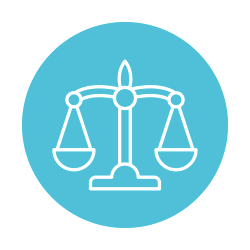Manual of Corporate Governance of ISOC Cold Chain Logistics, Inc.
Code of Business Conducts & ethics

I. STATEMENT OF POLICY
The Board of Directors of ISOC Cold Chain Logistics, Inc.’s (the “Corporation”) hereby adopts this Code of Business Conduct and Ethics that provides for professional and ethical behavior and articulates the acceptable and unacceptable conduct, and practices in internal and external which govern the Corporation’s Board, senior management, officers, and employees (“Covered Parties”) in all their acts, functions and dealings.
This Code shall serve as the embodiment of the Corporation’s unwavering dedication to uphold the fundamental corporate principles of fairness, accountability, integrity and transparency. As such, this Code seeks to establish the basic standards of ethical and legal conduct, outline mechanism for identifying or reporting ethical or legal violations in the organization and provide safeguards to prevent or determine instances of infractions or breach of ethical standards.
This Code is not intended to provide a comprehensive document meant to cover all ethical issues that the Corporation may encounter in its operations. As such, it shall be understood that the Code merely provides a general outline for the Covered Parties on how to conduct themselves in the decisions, transactions and interactions internal or external in alignment with these corporate principles when performing their respective duties and responsibilities.
This Code shall be disseminated to all the Covered Parties and disclosed to the public through the company website..

II. STANDARDS OF BUSINESS CONDUCT AND ETHICS
This Code is intended to be used as reference by the Covered Parties on the current guidelines related to the corporate principles when performing their respective duties and responsibilities. The Covered Parties shall observe and comply with the following ethical principles and practices:
1. Compliance
The Covered Parties shall comply with all laws, rules and regulations governing the business operations of the company. In the performance of their duties, the Covered Parties shall, at all times, be aware of and adhere to the requirements and restrictions imposed by laws, rules and regulations and the Corporation’s standards, policies, rules and procedures. In case of complex legal questions or interpretation of applicable laws, rules or regulations, the same may be referred to the Compliance Officer of the general counsel of the Corporation.
2. Fair Dealing and Policy Against Insider Trading
The Covered Parties are reasonably expected to observe fairness and candor in dealing with other stakeholders of the Corporation.
a. The Covered Parties shall treat everyone with respect and shall be guided by professionalism, integrity and good faith in transactions with and obligations to the other stakeholders.
b. The Covered Parties shall avoid taking undue advantage of anyone through manipulation, concealment, abuse of privileged information, misrepresentation of material facts, or any other form of deceptive practice.
c. The Covered Parties shall not engaged in the trade, purchase or sale, or otherwise recommend that another person trade or deal, the Corporation’s securities (or related derivative securities) where s/he is in possession of material information concerning the Corporation that has not been disclosed to the public.
d. The Covered Parties shall not personally benefit on businesses or opportunities that are discovered through the use of the property, information or position of the Corporation. The Covered Parties owe a duty to the Corporation to advance its legitimate interests when the opportunity to do so arises.
3. Conflict of Interest
The Covered parties shall act in the best interest of the Corporation and avoid activities, situations or associations which could impair their ability to perform their work in the Corporation’s best interest or where even the appearance of a conflict of interest may arise. A Conflict of Interest occurs when:
a. The private interest of a Covered Party interferes or appears to interfere in any way with the interests of the Corporation as a whole; or
b. The Covered party takes action or has interests that make or appear to make it difficult to perform his or her work objectively and effectively.
Possible conflict of interest situations include, but not limited to, the following:
a. Corporate Opportunity
Covered Parties should not take for themselves opportunities acquired through the use of corporate property, information or influence for personal gain, to compete with the Corporation, or act against its best interest.
b. Relationships
Covered Parties should avoid any actual or apparent conflict of interest and any material transaction or relationship that could reasonably be expected to give rise to a conflict of interest.
c. Gifts
The Corporation restricts the solicitation or acceptance of gifts in any form from a third person in consideration of any act, omission or transaction with the Corporation which would favorable to such third person with existing or intended business dealings with the Corporation.
Restriction shall not apply to: a) gift of nominal value voluntarily given by a third person to a Covered Party as a souvenir or out of courtesy; or b) a gift given for charitable projects for the benefit of the poor or the general public.
d. Outside investments
Covered Parties should avoid taking part in or influencing decisions of the Corporation involving business transactions with entities in which we have a personal relationship or substantial financial interest.
e. Outside employment
Covered Parties should avoid activities and interests that could significantly affect the objective or effective performance of their duties and responsibilities in the Corporation or which presents a situation that could compete or go against the interests of the Corporation, including business interests or unauthorized employment outside the Corporation.
In view of the foregoing, the following shall be strictly observed:
a. Any possible conflict of interest by a Covered Party of the Corporation shall be promptly and fully disclosed to the Audit and Risk Committee of the Corporation.
b. In case where the Covered Party is unsure whether an act or transaction would result in any conflict-of-interest situation, the Covered Party shall consult with the Audit and Risk Committee of the Corporation (in case of a Director), the Compliance Officer (in case of an officer) or his or her immediate supervisor (in case of an employee).
4. Financial Reports and Public Disclosure
The Corporation is fully committed in ensuring that the financial reports and disclosures regarding the Corporation’s business, financial condition and results of operations are accurately, completely and timely provided to the public and to the stakeholders of the Corporation. The Corporation shall ensure that it complies with all disclosure requirements of the Securities and Exchange Commission and other government agencies or regulators.
The directors, principal financial officers and other employees of the Corporation shall be primarily responsible for ensuring that all of the Corporation’s financial reports and disclosures are full, fair, accurate, timely and compliant with the generally accepted principles and all standards, laws and regulations for accounting and financial reporting of transactions, estimates and forecasts.
5. Policy Against Bribery and Corrupt Practices
The Corporation adopts a strict policy against providing or receiving bribes, kickbacks and other payoffs and benefits to or from suppliers or customers.
The Covered Parties shall avoid the commission of any act that may be construed as direct or indirect bribery and corruption, as defined by law, of government officials to facilitate any transaction or gain any perceived or actual favor or advantage. No excessive fees, commissions or other payments will be made, so as to avoid the impression that a bribe or other improper payment is being made.
6. Confidentiality and Proper Use of Property
Any Covered Party who will have access to confidential information in the course of his or her service or employment to the Corporation shall not make any unauthorized disclosures, infringement or use of the same. Confidential Information shall not be used for personal gain. The obligation shall continue despite separation from the Corporation or termination of his or her services.
Confidential Information entrusted by the Corporation’s clients and partners shall likewise not be disclosed without the client or the partner’s written consent unless such disclosure is required by law. Such information shall not be used for personal or unauthorized reasons.
Personal and unauthorized use of company assets is prohibited. Company assets shall include intellectual property and proprietary information. Covered Party shall use company assets with due care and all loss, damage, theft or misuse of the same should be immediately reported to the Corporation for appropriate action.
7. Shareholders and Investors Relations
The Corporation respects and protects the rights of the shareholders, including their right to a fair return of their investment. In this regard, the Corporation shall restrict or minimize the undertaking of risk so as not to jeopardize shareholder value. The Corporation shall fully assess and manage risks involved in undertaking strategies, acquisitions, activities, products, services and other business endeavors and adopt strategies, actions, decisions and transactions based on increasing shareholder value.
8. Employee Relations
Harassment and unlawful discrimination are strictly prohibited. The Corporation shall ensure fair and respectful treatment of its employees. All Covered Parties of the Corporation shall cultivate an environment which promotes fairness, integrity, professionalism and respect towards one another.
9. Community Relations
The Corporation supports socio-economic projects that improve the lives of the people it serves. As such, the conduct of business and maintenance of the workplace is accordance with applicable health, safety and environment laws.

III. WHISTLE BLOWING POLICY
Reporting of Violations
All Covered parties are required to promptly report any instance or reasonably suspected violation of this Code to the management of the Corporation. The Board shall ensure that the Corporation encourages employees to report to their immediate supervisors, managers or other appropriate personnel when in doubt about the best course of action in a particular situation. Directors should ensure that the Corporation has an effective means for employees to report violations of laws, rules, regulations or the Corporation’s Code of Business Conduct and Ethics.
For this purpose, violations of the applicable laws, rules, regulations and this Code shall be reported as follows:
a. A Director or Executive Officer shall report any know or suspected violation of this Code to the Chairman of the Governance Committee.
b. An employee or personnel, who believes s/he has reasonable ground to support an instance of suspected violation of the applicable laws, rules, regulations and this Code, shall report this matter to the attention of his or her immediate supervisor, who in turn shall determine if there is a reasonable ground to support the complaint. Upon determination of the existence of a reasonable ground, the immediate supervisor shall formalize the report in a written complaint and submit to the human resource department.
If the immediate supervisor is the subject of the complaint, the employee shall director his or her complaint to the head of the human resource department.
Any compliant against a Director or Executive Officer received by the human resources department shall be directed to the Corporate Governance Committee.
c. The written complaint must clearly identify the individuals involved, the facts and the grounds relied upon. If the written complaint is found to be insufficient, the complainant may be asked to submit clarificatory statement or supporting documents.
d. If the complaint is found to be sufficient, the Director, Officer or Employee shall be informed of the complaint against him or her without disclosing the name and personal details of the complainant.
Investigation of Reported Violations
If the complaint is found to be sufficient, an investigation shall be promptly made by the Governance Committee or the human resource department, as the case may be. Any decision made on the written complaint, after proper consideration and investigation, shall be disclosed to the complainant and the Director, Officer or Employee concerned.
Non-Retaliation Policy
The intimidation or imposition of any form of retribution against any Covered Party who resorted to the foregoing mechanism in good faith to report suspected violations shall be strictly prohibited. Any reprisal or retaliation against an employee in violation of this policy shall be subject to disciplinary action, including potential termination of employment.
All complaints or reported violations of the laws, rules, regulations and this Code shall be promptly investigated. The privacy of the reporting persons will be protected to its fullest extent necessary for a proper conduct of the investigation. If the investigation substantiates the complaint, immediate corrective action designed to stop the discrimination and prevent its recurrence shall be taken.

IV. DISCIPLINARY MEASURES
Any person violating the applicable laws, rules, regulations and this Code shall be held accountable. The Corporation shall promptly impose the appropriate disciplinary action against any identified violation pursuant to procedures provided in this Code. The disciplinary measures which may be imposed upon any person found guilty of such violation shall include, but not be limited to, oral or written reprimands, warnings, probation or suspension without pay, demotions, reductions in salary, termination of employment and restitution.

V. EFFECTIVITY
This Code was approved by the Board of Directors on June 3, 2022 and shall take immediately.
MICHAEL C. COSIQUIEN YERIK C. COSIQUIEN
Chairman of the Board of Directors
YERIK C. COSIQUIEN
President
ATTY. OLIVIA TAGANAS
Compliance Officer
Copyright 2019. ORCA Cold Chain Solutions. Sitemap
- Privacy Policy
- Terms of Use
